TABLE OF CONTENTS
Best Tunisian Foods
MAIN INGREDIENTS
Maakouda are traditional potato fritters that are popular throughout the Maghreb, especially in Morocco, Algeria, and Tunisia. The fritters are usually prepared plain, but they can also be stuffed with meat, tuna, or cheese, although not that often.
They're made with potatoes, parsley, garlic, flour, salt, and pepper. The potatoes are boiled, mashed, and mixed with other ingredients into small disks which are then deep-fried in hot oil until golden brown. Maakouda is traditionally served as an appetizer, a side dish, or an ingredient in a long sandwich roll that's usually sold as street food and served with harissa, coriander, and lemon juice.
MAIN INGREDIENTS
Merguez is a spicy, flavorful sausage that originates from North Africa, particularly Algeria, Tunisia, and Morocco. It is traditionally made from ground lamb or beef, or a combination of both. Merguez is known for its distinctive red color, which comes from the addition of spices such as paprika, chili pepper, and harissa (a hot chili paste).
Other common seasonings include cumin, garlic, coriander, fennel, and sumac. The sausages are typically stuffed into lamb casings and can be grilled, pan-fried, or used in a variety of dishes, including stews, tagines, and couscous. Merguez is popular in North African cuisine and has also become widely enjoyed in France and other parts of Europe.
Bambalouni are traditional Tunisian doughnuts that are especially popular in the village of Sidi Bou Said. They are made with flour, hot water, yeast, and salt. After the dough has been prepared, it is fried in hot oil until golden brown, and the doughnuts are then sprinkled with sugar on top.
It is recommended to serve bambalouni with coffee, either for breakfast or as a snack eaten at the end of the day.
Houria is a Tunisian salad made with carrots, harissa, garlic, vinegar, olive oil, caraway seeds, and salt. The salad is inexpensive and very easy to prepare. The carrots should be boiled and then lightly smashed into a purée. The purée is then combined with all other ingredients, and the salad is typically garnished with finely chopped parsley on top.
However, there are many versions of this dish, so it is not uncommon to see hard-boiled eggs, olives, crumbled feta cheese, or coriander in the salad, which is typically served as a side dish, but it can also be consumed on its own.
MAIN INGREDIENTS
Shakshouka is a delicious combination of eggs poached in a spicy tomato sauce. Although it has an unusual name, the dish is straightforward and easy to make. It is usually made in a skillet in which onions, tomatoes, and spices are cooked until they form a delicious tomato sauce.
Eggs are then added directly to the tomato sauce and poached until done. Merguez sausage can also be added to the dish. It is believed that shakshouka originated in Tunisia, but the dish is well-known and commonly eaten throughout North Africa and the Middle East as well.
MAIN INGREDIENTS
M'semen is a traditional Maghrebi flatbread made with a combination of flour, semolina, sugar, salt, yeast, warm water, oil, and clarified butter. The dough is kneaded until it becomes smooth, and pieces of it are then flattened and shaped into squares.
Once the dough has been folded and shaped, it is cooked on a griddle or fried in a pan until it becomes crispy on the exterior and chewy on the inside. Although m'semen is traditionally consumed on its own as an accompaniment to coffee or tea, it can also be stuffed with various meats and vegetables.
Mechouia is a Tunisian salad made with grilled, coarsely chopped onions, peppers, tomatoes, and garlic, drizzled with olive oil and seasoned with caraway, salt, and black pepper. The salad is then typically garnished with hard-boiled eggs, olives, or tuna.
The salad can be served on its own, but it is also often served on toasted bread or baguette slices. It is quite common to find it in Tunisia as a part of a mix of appetizers in traditional restaurants.
Assidat zgougou is a traditional dessert made with a combination of seeds of Aleppo pine, sugar, flour, starch, water, and rosewater. The zgougou seeds are ground and combined with the sugar, flour, and starch, then stirred continuously while the concoction is cooking over low heat until it thickens.
Another component, the custard, is made with sugar, milk, starch, vanilla, egg yolks, and rosewater. The cream is placed on the bottom of a glass, followed by a layer of custard, and the dessert is then usually sprinkled with nuts such as toasted almonds or pistachios on top.
Numerous tiny, light, tender grains, ideally arranged to form a pyramid and served on a platter at the end of a meal - that is couscous, the national dish of Morocco and Algeria and a must-have dish in any Moroccan and Algerian restaurant. The word itself refers both to the complete dish and the tiny grains of semolina.
Semolina flour is sprinkled with water until it forms into tiny pellets that are then pushed through a sieve. Couscous is usually prepared on Fridays for lunch, when whole families get together for the most important meal of the week. The dish is traditionally made in a metal steamer pot called a couscoussier, where the stew is on the bottom, while the small grains are in the perforated basket on top, cooking in the steam that is rising from the rich stew.
Tunisian brik is a popular dish that incorporates flaky dough filled with a variety of savory ingredients. Traditionally, malsouqa dough is used to create brik, but the more available phyllo pastry is commonly used as a replacement. Brik is usually made with layers of laminated pastry, to achieve a crunchy, layered texture.
The pockets are filled with stuffing, skilfully folded, then shortly fried in deep oil or baked in an oven. The most common filling is tuna-based, enriched with traditional North African spices such as cilantro, chilis, pepper, or coriander seeds.
A raw egg is often placed on top of the tuna filling, the pastry is carefully folded, and the egg partially cooks inside the flaky pastry.
TABLE OF CONTENTS
Best Tunisian Food Producers
Domaine Adonis is an olive oil producer based in Tunisia. They specialize in high-quality, extra virgin olive oils. Their products are made using traditional cultivation methods combined with modern processing techniques. Domaine Adonis focuses on sustainability and maintaining the natural ecosystem in their olive groves.
The company emphasizes the importance of the terroir, which contributes to the unique flavor profile of their olive oils.
AWARDS

ATHENA IOOC - Double Gold
2024
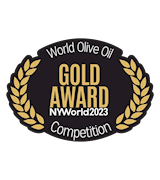
NYIOOC - Gold
2023
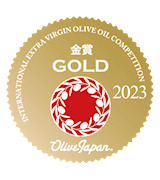
Olive Japan - Gold
2023, 2022, 2020
BEST Domaine Adonis Olive Oils
Olivko is a premium producer of extra virgin olive oil, made from carefully selected olives and cold-extracted to preserve its natural qualities. With a rich aroma, smooth texture, and balanced flavor, Olivko represents the finest Mediterranean tradition.
It is crafted with sustainability in mind, ensuring high quality and purity in every bottle, perfect for gourmet cooking and healthy living.
AWARDS
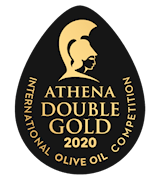
ATHENA IOOC - Double Gold
2020
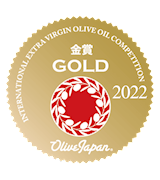
Olive Japan - Gold
2022, 2021, 2018

EVO IOOC - Gold Medal
2022, 2021, 2020, 2018
BEST Olivko Olive Oils
AWARDS

NYIOOC - Gold
2023

Olive Japan - Gold
2023
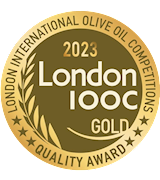
London IOOC - Gold
2023, 2022
BEST Fermes Ali Sfar Olive Oils
AWARDS

Olive Japan - Gold
2023

London IOOC - Gold
2023, 2021
BEST Terroliva Company Olive Oils
AWARDS
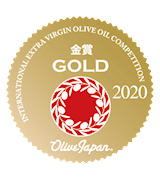
Olive Japan - Gold
2020

Olive Japan - Best of Country
2020
BEST Oleastra Olive Oils
UZALIS is an olive oil producer based in Tunisia. They are known for producing high-quality extra virgin olive oil. The company focuses on sustainable farming practices and uses traditional methods combined with modern technology for olive oil extraction.
UZALIS places emphasis on quality control procedures to ensure the purity and flavor of their products. Their olive oils are distributed both locally and internationally.
Massiva is an olive oil producer based in Tunisia. They specialize in producing high-quality extra virgin olive oil using traditional farming techniques. The company emphasizes sustainable practices and prioritizes the health of their olive groves.
Massiva olive oil is available in various international markets.
AWARDS
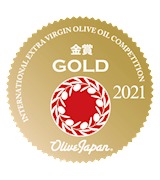
Olive Japan - Gold
2021
BEST Hdmp Olive Oils
TABLE OF CONTENTS
Best Tunisian Food Products
AWARDS

ATHENA IOOC - Double Gold
2024

OLIVINUS - TOP 20 OLIVINUS 2022
2022

OLIVINUS - Gran Prestigio Oro
2022
AWARDS

NYIOOC - Gold
2023
Tesoro del Rio Chemlali is an olive oil product made by Fermes Ali Sfar. It is crafted from Chemlali olives, which are a traditional variety native to Tunisia, known for their robust and fruity flavor profile. The olives are harvested at peak ripeness to ensure maximum flavor and quality.
Fermes Ali Sfar places a strong emphasis on traditional cultivation techniques combined with modern production standards to create a premium oil that honors its origins.
AWARDS

NYIOOC - Gold
2023
AWARDS

NYIOOC - Gold
2023
AWARDS

NYIOOC - Gold
2023
AWARDS

EVOOLEUM - Top 100
2022
AWARDS
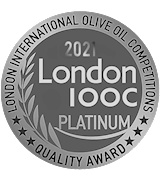
London IOOC - Platinum
2021
AWARDS

London IOOC - Platinum
2021
AWARDS

NYIOOC - Gold
2023

Olive Japan - Gold
2022

EVO IOOC - Gold Medal
2022, 2021
AWARDS

ATHENA IOOC - Double Gold
2020

EVO IOOC - Gold Medal
2022, 2021, 2020, 2018

Olive Japan - Gold
2021
TasteAtlas food rankings are based on the ratings of the TasteAtlas audience, with a series of mechanisms that recognize real users and that ignore bot, nationalist or local patriotic ratings, and give additional value to the ratings of users that the system recognizes as knowledgeable. For the “Top 100 Tunisian Foods” list until April 13, 2025, 5,212 ratings were recorded, of which 1,488 were recognized by the system as legitimate. TasteAtlas Rankings should not be seen as the final global conclusion about food. Their purpose is to promote excellent local foods, instill pride in traditional dishes, and arouse curiosity about dishes you haven’t tried.










































































